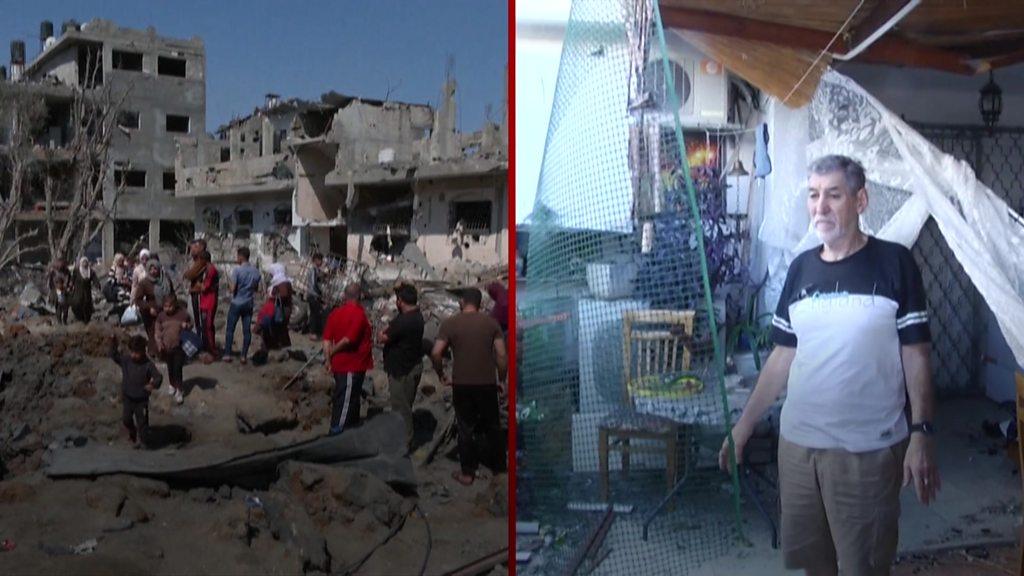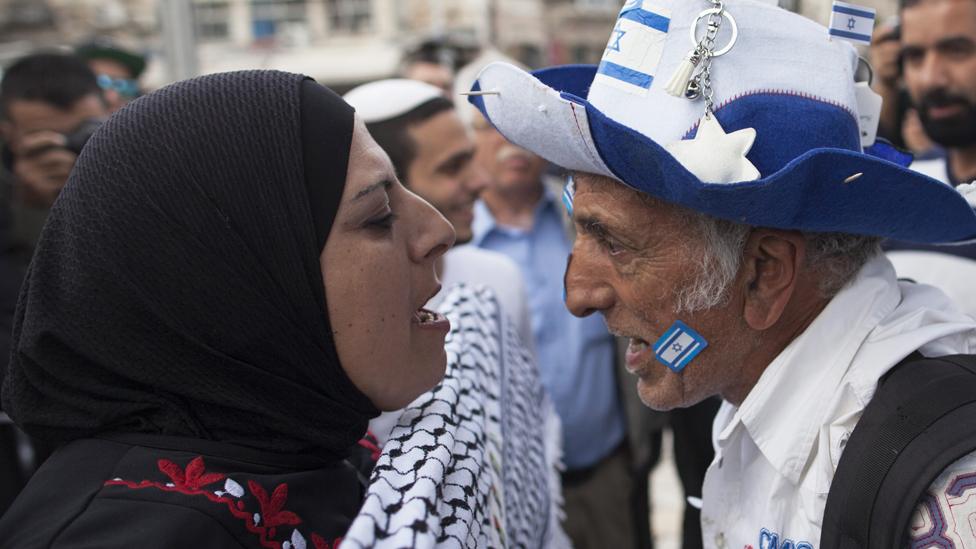Israel-Gaza: Netanyahu says militants 'set back by years'
- Published
Israeli air strikes bombard Gaza Strip
Israel's nine-day bombardment of Gaza has "set Hamas back by many years", Israeli Prime Minister Benjamin Netanyahu has said.
Israel and Palestinian militant groups in Gaza again exchanged fire overnight into the early hours of Wednesday.
Diplomatic efforts to end the violence have met with little success.
France has filed a draft resolution with the UN Security Council, in co-ordination with Egypt and Jordan, calling for a ceasefire.
Earlier on Tuesday, Israel briefly opened a border crossing into Gaza to allow a convoy of aid to enter. However, the crossing was closed again after it came under fire from Palestinian mortars and rockets.
What did Netanyahu say?
Hamas, the Palestinian militant group that runs Gaza, had been dealt "unexpected blows" and operations would "continue for as long as it takes to restore calm" for all Israeli citizens, he said.
At least 215 people, including almost 100 women and children, have been killed in Gaza so far, according to its health ministry.
Allow X content?
This article contains content provided by X. We ask for your permission before anything is loaded, as they may be using cookies and other technologies. You may want to read X’s cookie policy, external and privacy policy, external before accepting. To view this content choose ‘accept and continue’.

In Israel 12 people, including two children, have been killed, its medical service says.
On Tuesday Israel said at least 150 militants were among those killed in Gaza. Hamas does not give casualty figures for fighters.
Israel estimated that at the start of the conflict, Hamas and Islamic Jihad, the two main groups in Gaza, had an arsenal of about 12,000 rockets or mortars.
As of 15:00 GMT on Tuesday, militants had fired some 3,300 rockets at Israel, of which 450 to 500 fell short, causing casualties in Gaza, an Israeli military spokesman said.
What happened overnight?
Sirens sounded in southern and central Israel in response to the latest barrage of Palestinian rockets.
Israeli aircraft carried out dozens of raids, many of them on the city of Khan Younis.
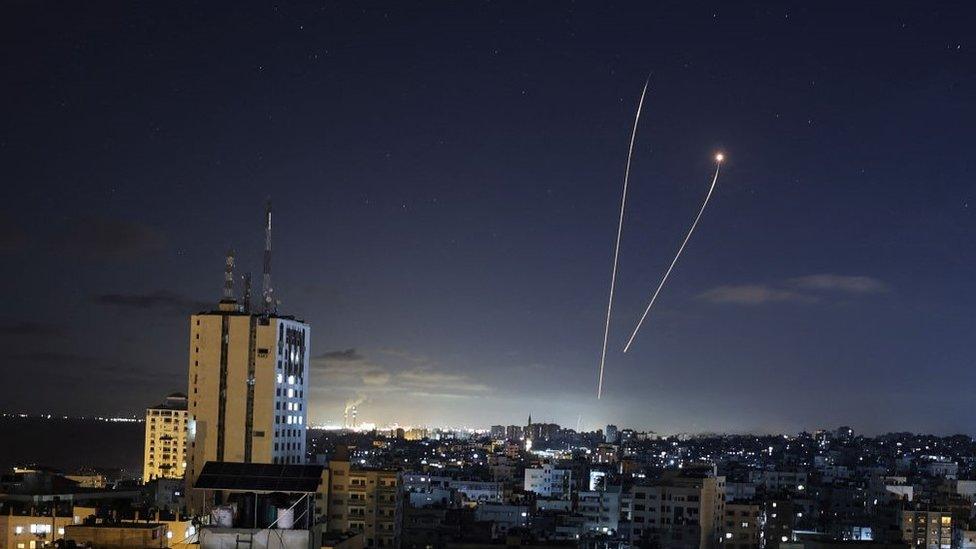
Israel's Iron Dome anti-missile system intercepted rockets throughout the night
Two Palestinian militants were killed in an Israeli air raid targeting an apartment in a building in central Gaza City on Wednesday morning, the BBC's Rushdi Abualouf reports.
What happened on Tuesday?
Many Palestinians in the occupied West Bank and East Jerusalem took part in a general strike to protest at the bombing of Gaza. Areas inside Israel with an Israeli Arab majority, such as Haifa, also joined the strike.
Public services, schools and many businesses were closed.
There were clashes in several locations. In the West Bank town of Ramallah, Israeli police said they were fired on during a "violent riot" and returned fire.
Three Palestinians in the area were killed, the health ministry said. Another Palestinian was killed after he attempted to attack soldiers in Hebron, the Israeli army said.
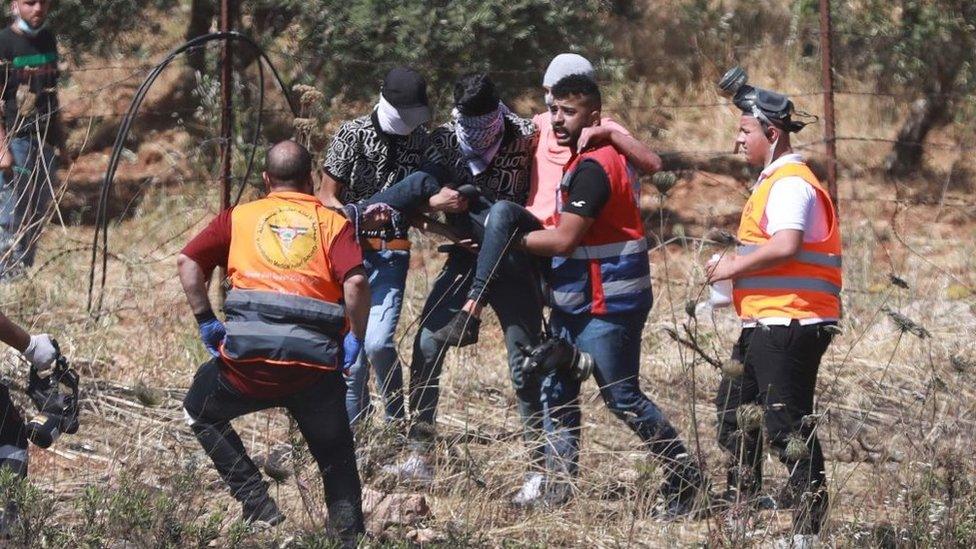
Clashes took place in the West Bank on Tuesday
Earlier on Tuesday, Israel opened the Kerem Shalom crossing to allow aid into Gaza, but closed it again after Palestinian militants fired mortars at the area.
Two Thai nationals working on a farm 14km (nine miles) from the border were killed.
Meanwhile at the Rafah crossing with Egypt, the only entry point to Gaza not controlled by Israel, a convoy of 15 lorries carrying fuel and 18 loaded with food and medicine entered the territory.
The UN humanitarian agency Ocha said 52,000 people in Gaza had been displaced, of whom 47,000 had fled to UN schools.
Diplomatic deadlock
In New York, the latest meeting of the UN Security Council again failed to reach agreement on a response.
France said its draft resolution was compiled during a video-conference with Egypt's leader Abdel Fattah al-Sisi and Jordan's King Abdullah II.
The US has blocked previous attempts to issue a joint Security Council statement calling for an immediate ceasefire.
The US, the EU and other powers have called for an end to the conflict. Egypt has been seeking to mediate between Israel and Hamas.
However, Israel has said it will continue its offensive for now, in an effort to destroy the capabilities of Hamas and Islamic Jihad.
The Palestinian ambassador to the UN, Riyad Mansour, called the Security Council's failure to express a unified position "shameful".
Meanwhile, the US has accused Turkish President Recep Tayyip Erdogan of making "anti-Semitic" remarks about Israel.
He accused Israel of "terrorism" against the Palestinians and recently said: "It is in their nature". He then called Israel "murderers" and used terminology widely seen as promoting anti-Semitic stereotypes.
"The United States strongly condemns President Erdogan's recent anti-Semitic comments regarding the Jewish people and finds them reprehensible," State Department spokesman Ned Price said in a statement.
"We urge President Erdogan and other Turkish leaders to refrain from incendiary remarks, which could incite further violence," he said.

What caused the violence?
The fighting between Israel and Hamas was triggered by days of escalating clashes between Palestinians and Israeli police at a holy hilltop compound in East Jerusalem.
The site is revered by both Muslims, who call it the Haram al-Sharif (Noble Sanctuary), and Jews, for whom it is known as the Temple Mount. Hamas demanded Israel remove police from there and the nearby predominantly Arab district of Sheikh Jarrah, where Palestinian families face eviction by Jewish settlers. Hamas launched rockets when its ultimatum went unheeded.
Palestinian anger had already been stoked by weeks of rising tension in East Jerusalem, inflamed by a series of confrontations with police since mid-April.
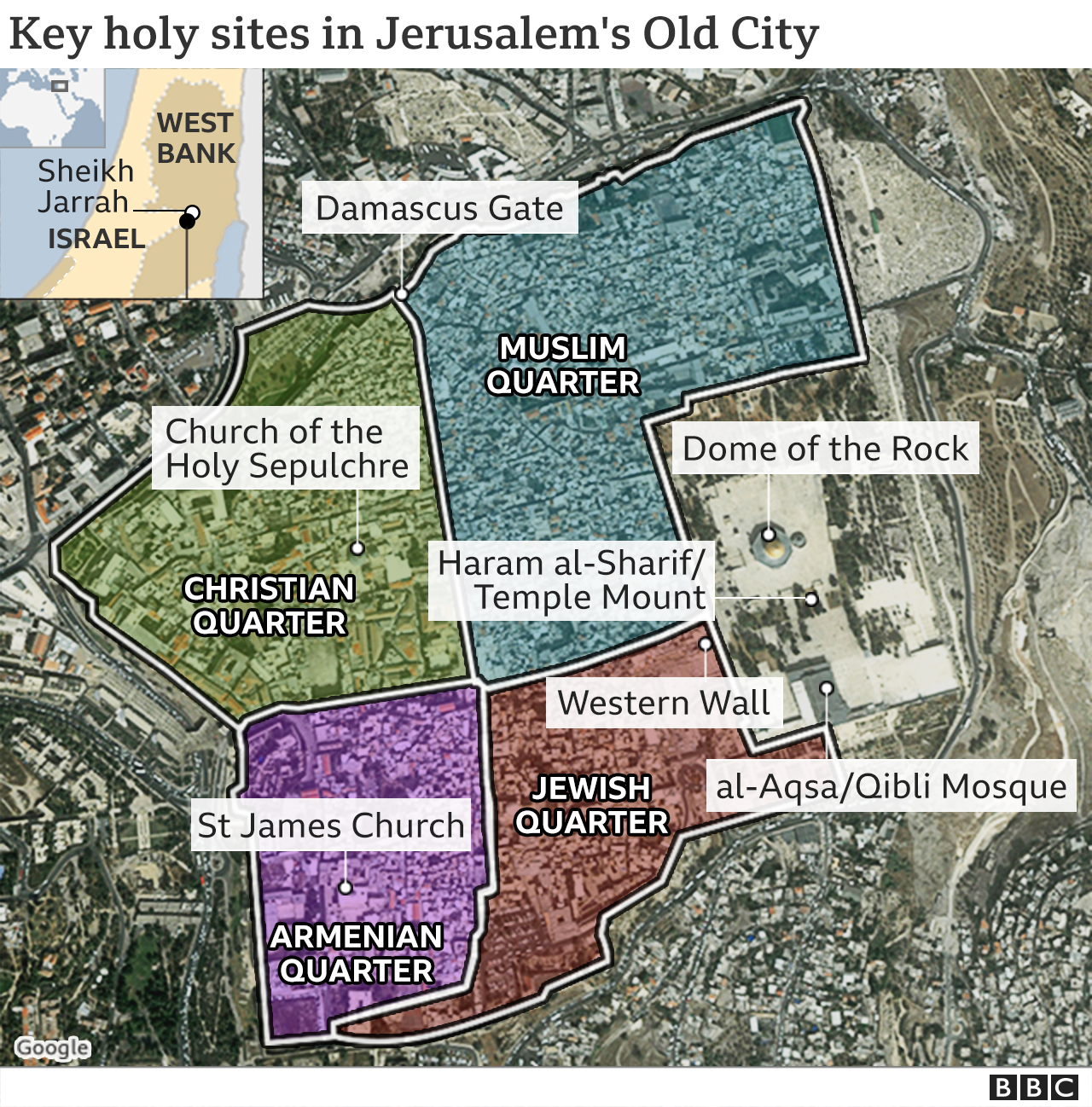

It was further fuelled by Israel's annual celebration of its capture of East Jerusalem in the 1967 Middle East war, known as Jerusalem Day.
The fate of the city, with its deep religious and national significance to both sides, lies at the heart of the decades-old Israel-Palestinian conflict. Israel in effect annexed East Jerusalem in 1980 and considers the entire city its capital, though this is not recognised by the vast majority of other countries.
Palestinians claim the eastern half of Jerusalem as the capital of a hoped-for state of their own.
Related topics
- Published18 May 2021
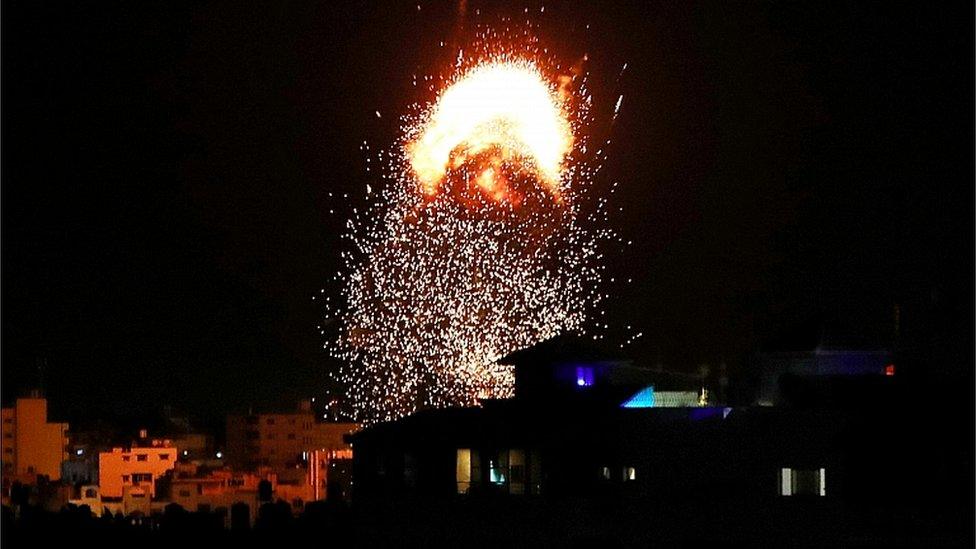
- Published14 May 2021
